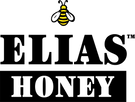Pollination is THE Number 1 reason we can all enjoy that wonderful serving of smashed avocado toast with almond milk chai - why? Pollination.
Virtually all of the world’s seed plants need to be pollinated. This is just as true for cone-bearing plants, such as pine trees, as for the more colourful and familiar flowering, fruit-bearing and nut-bearing plants. Think avocados, almonds, blackberries and just about everything found on this list of foods.
Pollination is an essential ecological survival function. Of the 1,400 crop plants grown around the world, i.e., those that produce all of our food and plant-based industrial products, about 80% require pollination by animals. Visits from bees and other pollinators also result in larger, more flavorful fruits and higher crop yields.
BENEFITS OF POLLINATION
- Cleaner Air: Flowering plants produce breathable oxygen by utilizing the carbon dioxide produced by plants and animals as they respire
- More Resilient Soils: Flowering plants help to prevent erosion through roots that holds the soil in place, and foliage that buffers the impact of rain as it falls to the earth
- Sustainable Water Use: Plants use water to convert carbon dioxide to energy, and as that water is used, it is purified on its way down to the water table
- Biodiversity: Biodiversity stimulates health, resilience, and the productivity of ecosystems. Without pollination there would be significantly lower diversity of flowers, crops, grasses and trees.
- Vitamins, Minerals and Wellness:: 98% of vitamin C comes from vegetables and fruits that depend on common pollinator species. Similarly, essential to our body vitamin A is found in around 70% of pollinated plants.
BEES AS POLLINATORS
It has often been said that bees are responsible for one out of every three bites of food we eat. Bees make excellent pollinators because most of their life is spent collecting pollen. That pollen, once it enters the hive, undergoes processing by bees to be used as a rich source of protein and essential nutrients that help develop offspring. Think of it as the bee’s baby formula!
Individual bees tend to focus on one kind of flower at a time, which means it is more likely that pollen from one flower will be transferred to another flower of the same species by a particular bee. Many plants require this kind of pollen distribution, known as cross-pollination, in order to produce viable seeds. The business of collecting pollen requires a lot of energy, and so many flowers attract and also reward bees with nectar, a mixture of water and sugars produced by plants. That nectar is then converted to honey within the hives, which is sealed off in beautiful honeycomb structures, made from beeswax. Humans have collected this honey from bees for thousands of years - and the beekeepers we work with leave plenty in the hive for the bees to feed on during the busy pollination season and all through the winter.
BC LOCAL BEEKEEPING BEST PRACTICES
Sustainable honey production starts with a love for bees and a respect for nature.
For decades, Elias Honey has developed relationships with family-run apiaries from B.C. all the way to Central Manitoba. We pride ourselves on our over 40 years of relationships with family owned beekeepers who care. This is why we’re able to bring you consistently high-quality, premium honeys year after year… after year!
Keeping to our roots, we source our BuyBC Local Certified Blackberry, Blueberry and Raspberry Honeys from B.C.’s Fraser Valley, which has a world-renowned berry-producing industry. Try them today – each one has a different flavour profile, and can be used to enhance both sweet and savoury flavours in your favourite foods.
Importantly, our beekeepers follow sustainable beekeeping practices - meeting the needs of our current population without compromising the ability of future generations to do the same. Bee population has been declining in recent years and the role of the beekeeper is very important when it comes to achieving sustainable development. By restoring healthier bee populations and using management care for bees in a way that respects their natural processes can improve the ecological agriculture which can help pollination.
If you are interested in more sustainable beekeeping practices, stay tuned for our next blog post!




